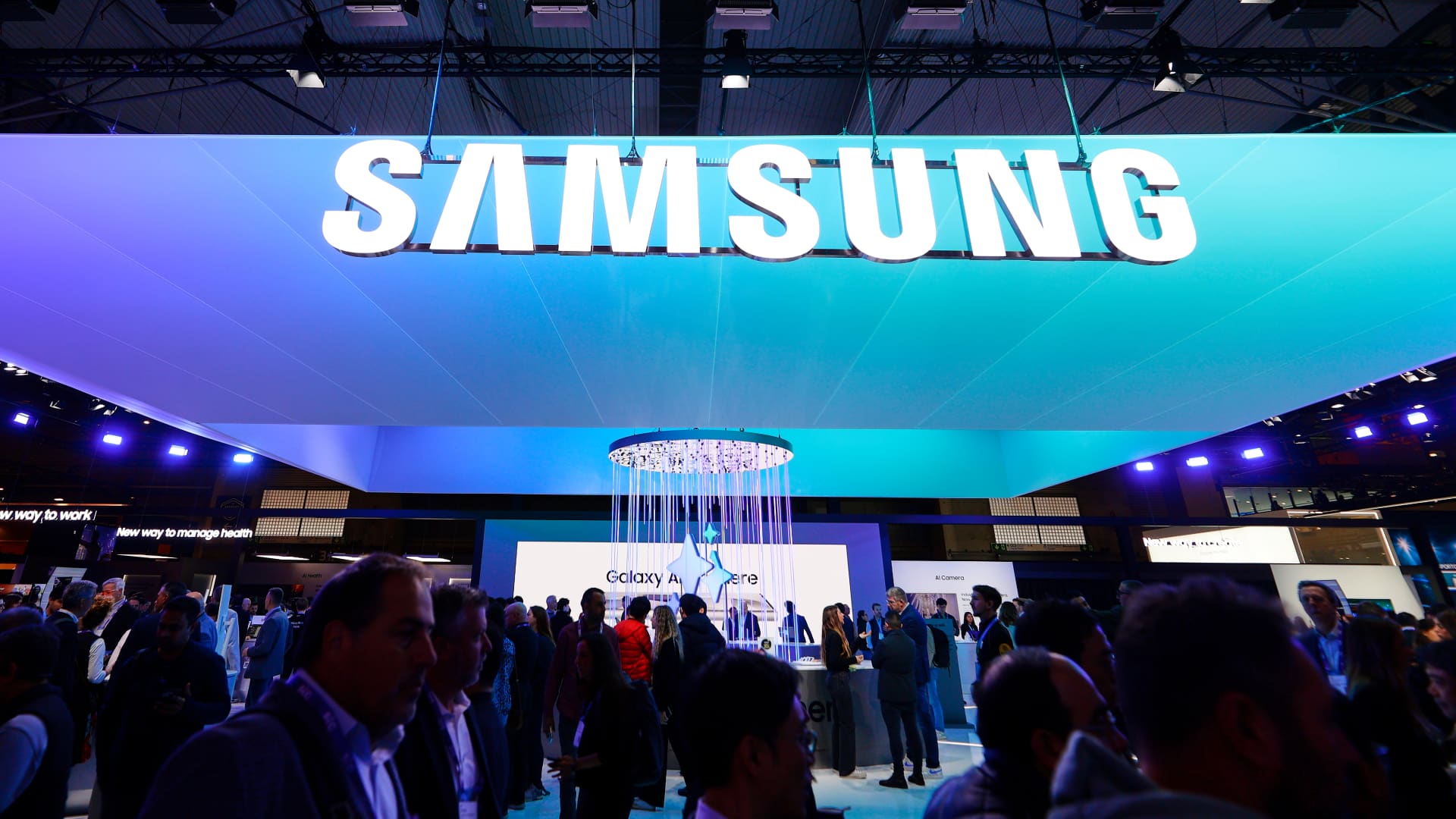Samsung’s logo is seen at its pavilion during the Mobile World Congress in Barcelona, Spain, on February 28, 2024. (Photo by Joan Cros/NurPhoto via Getty Images)
Nurphoto | Nurphoto | Getty Images
Shares of Samsung Electronics rose to their highest level since January 2021 after the South Korean tech giant said it expects better-than-expected second-quarter profit thanks to booming demand for artificial intelligence.
The stock climbed as much as 2.24 percent on Friday morning to hit a high of 86,500 Korean won ($62.73), according to LSEG data. Samsung shares closed at 84,600 won on Thursday.
Samsung issued guidance on Friday, saying operating profit for the April-June quarter is expected to be about 10.4 trillion won ($7.54 billion) — a jump of about 1,452% from 670 billion won a year ago. The expected operating profit topped an LSEG estimate of 8.51 trillion won.
The company also said it expects second-quarter revenue to be between 73 trillion and 75 trillion won, compared with 60.01 trillion won a year ago. This is in line with the 73.7 trillion won estimated by LSEG analysts.
Business for the world’s largest memory chip maker recovered as memory chip prices rebounded last year on optimism about AI. The South Korean electronics giant suffered record losses in 2023 as the industry reeled from a post-Covid slump in demand for memory chips and electronics.
This brand’s memory chips can be found in a variety of consumer devices, including smartphones and computers.

Samsung said in April that it expects the second quarter to be driven primarily by demand for generative AI, while demand for mobile devices remains stable.
The South Korean tech giant has bet big on generative AI with its Galaxy S24 Ultra smartphone, which features photo editing and online item searching using AI.
“Samsung reports earnings surprise, but the profit increase is mainly due to high memory price. Ironically, Samsung is lagging in HBM (high-bandwidth memory) production. So the supply to Nvidia – the qualification – has been delayed,” SK Kim, executive director of Daiwa Capital Markets, told CNBC’s “Street Signs Asia” on Friday.
HBM chips are advanced memory chips that are crucial for AI chipsets, which have seen huge demand thanks to the AI boom. This has largely benefited companies like Samsung Electronics and SK Hynix, the world’s two largest memory chip makers.
Reuters reported in May that Samsung has not yet been considered for use in Nvidia’s AI processors, as Nvidia is reportedly considering Samsung as a potential supplier of HBM chips. Samsung refuted the report, saying that tests with various partners for HBM supply are “on track.”
“But despite the delay, the company announced that the profit forecast is caused by the high memory price,” Kim said.
“So even though they are behind in HBM – the most advanced memory product – they benefit from their number one capacity and market share, maximizing their profits with a higher ASP (average selling price).”
Samsung will report detailed second-quarter numbers later this month.
– CNBC’s Lim Hui Jie contributed to this report.
